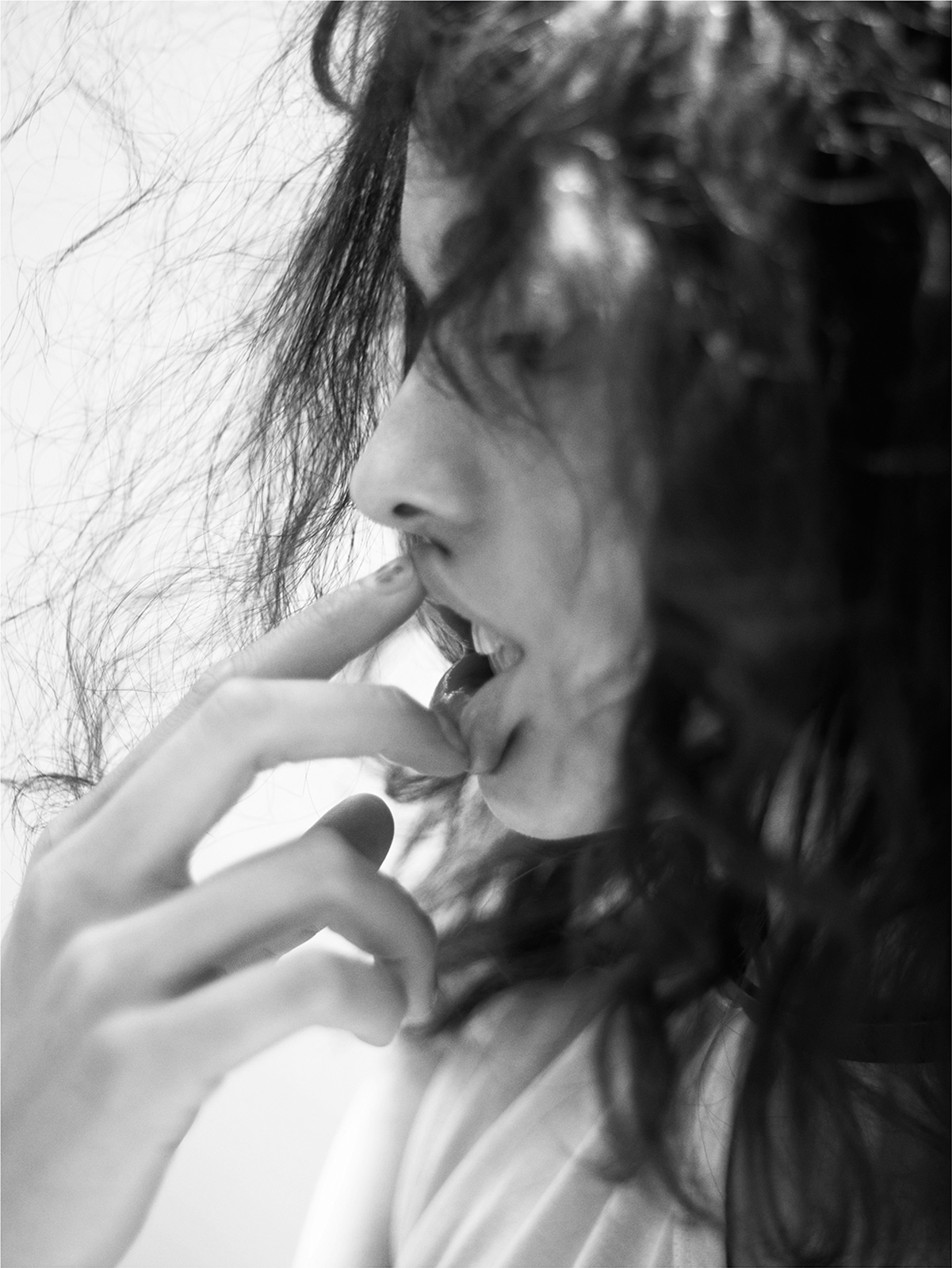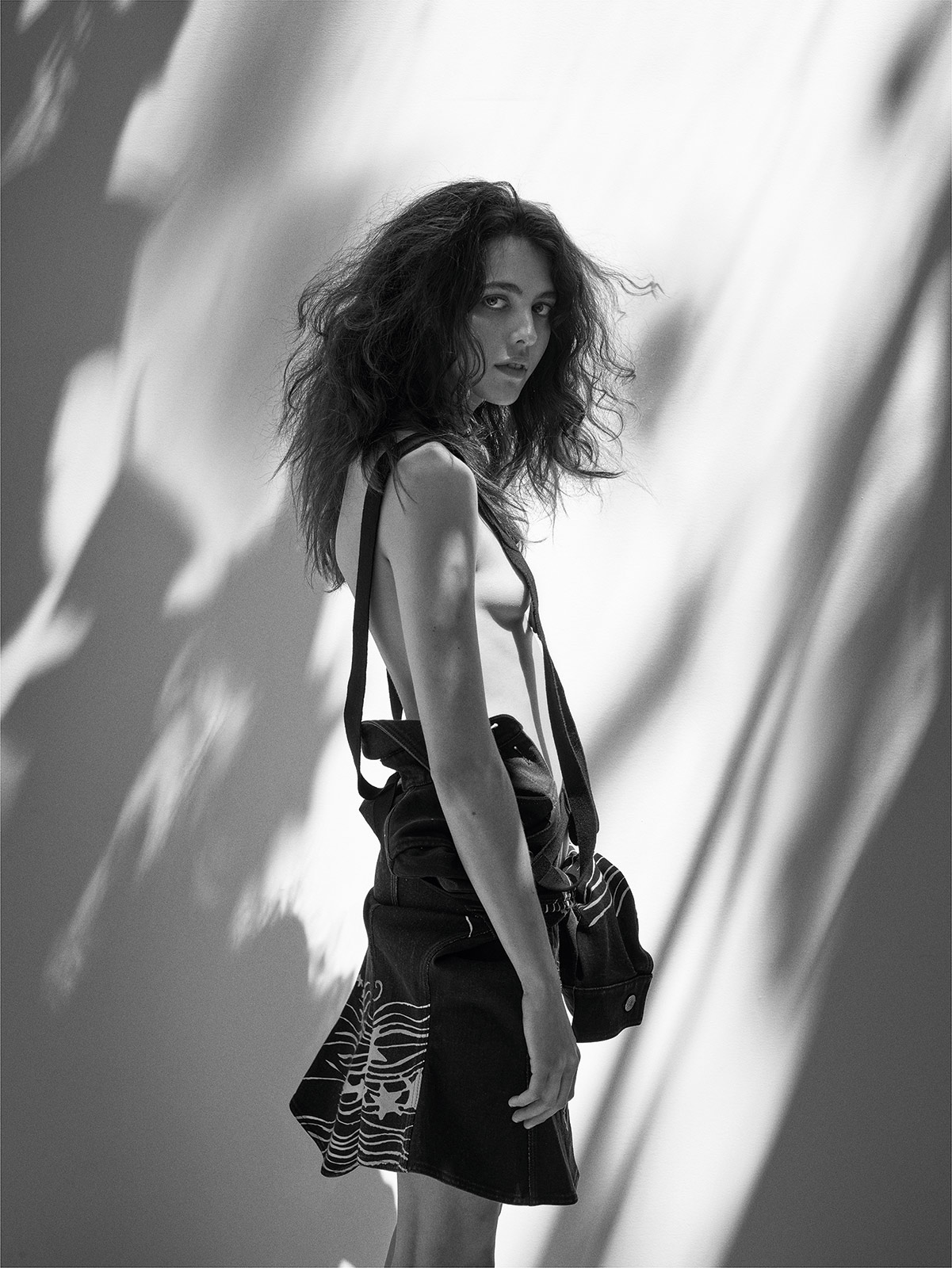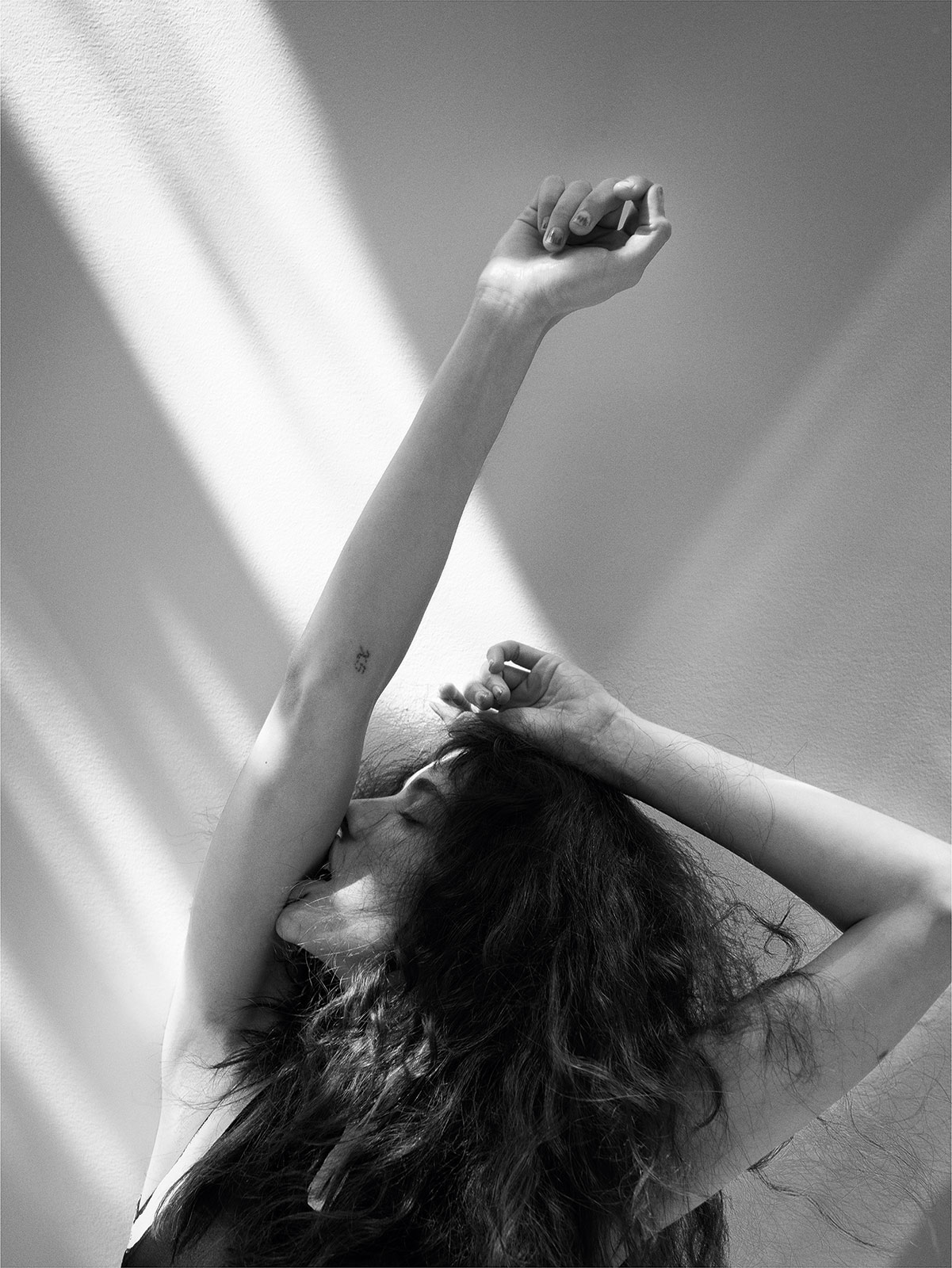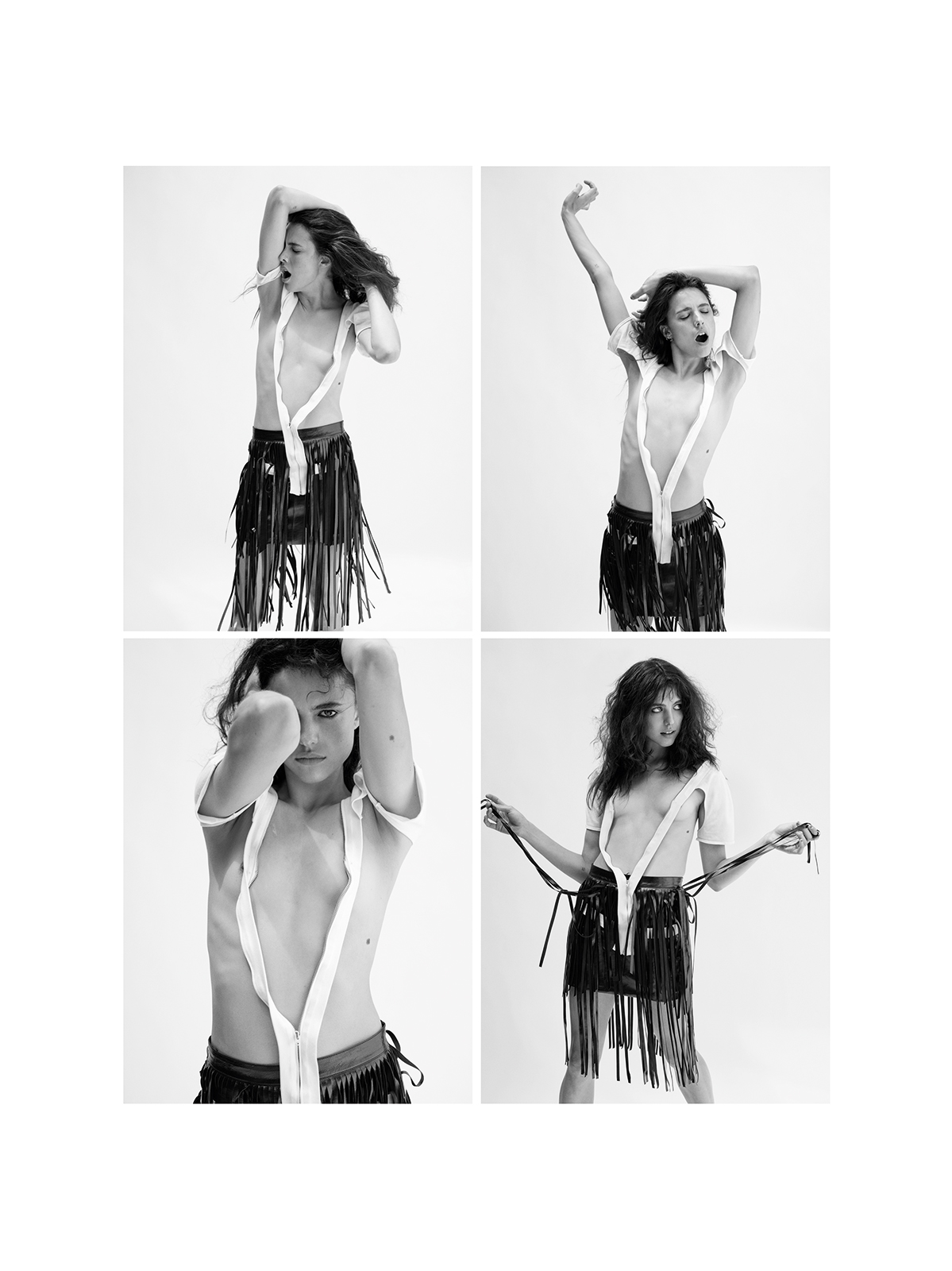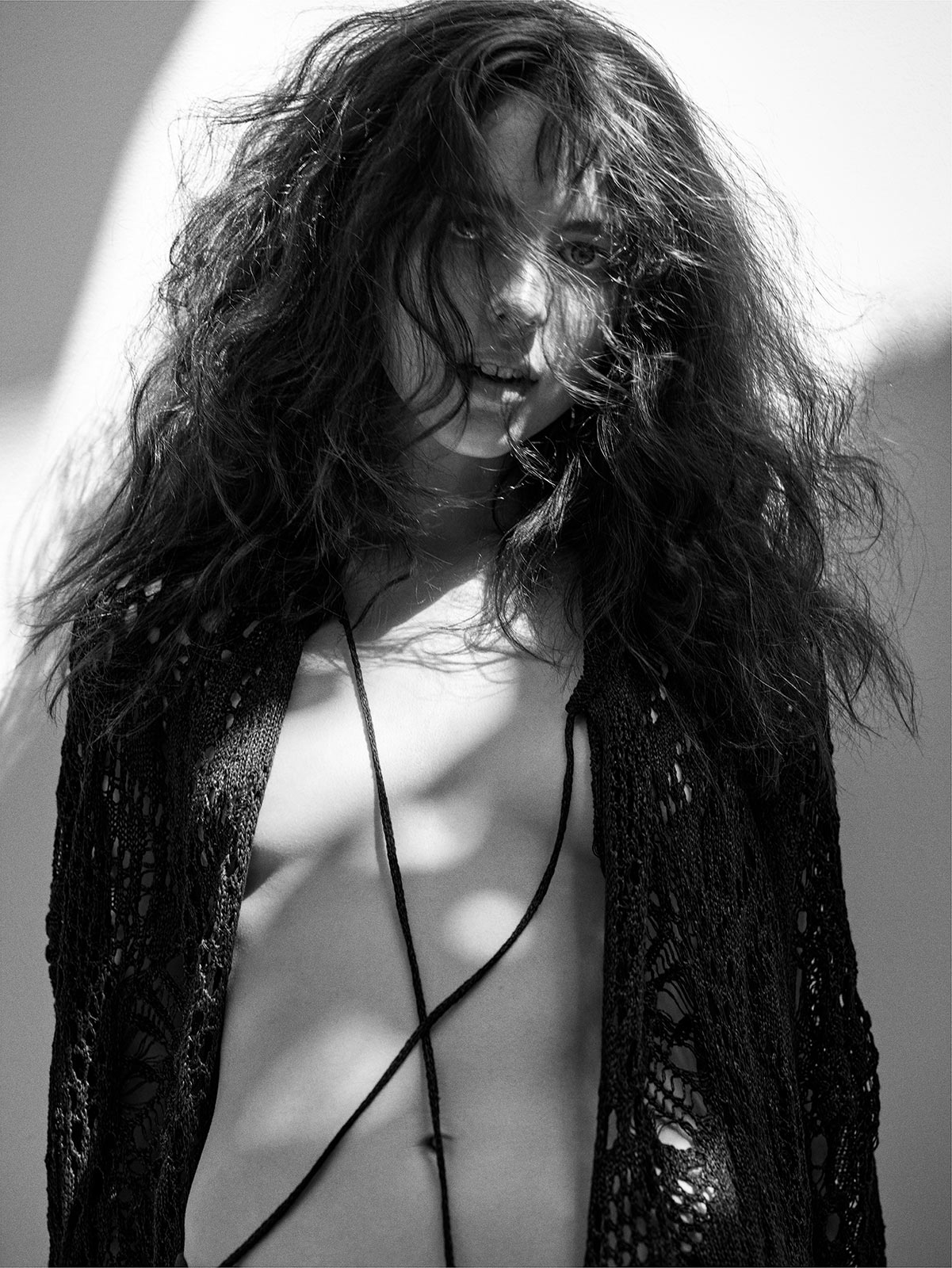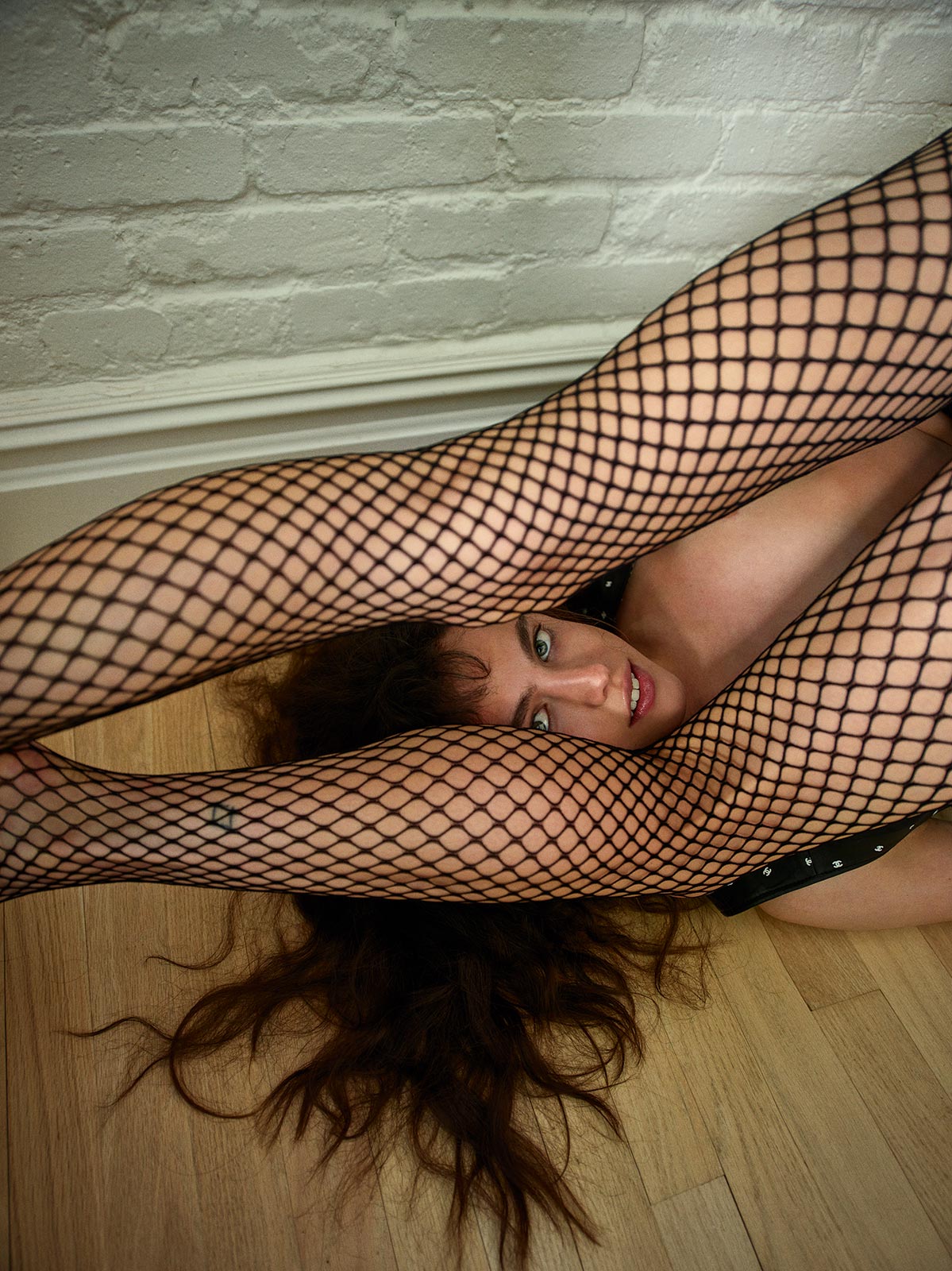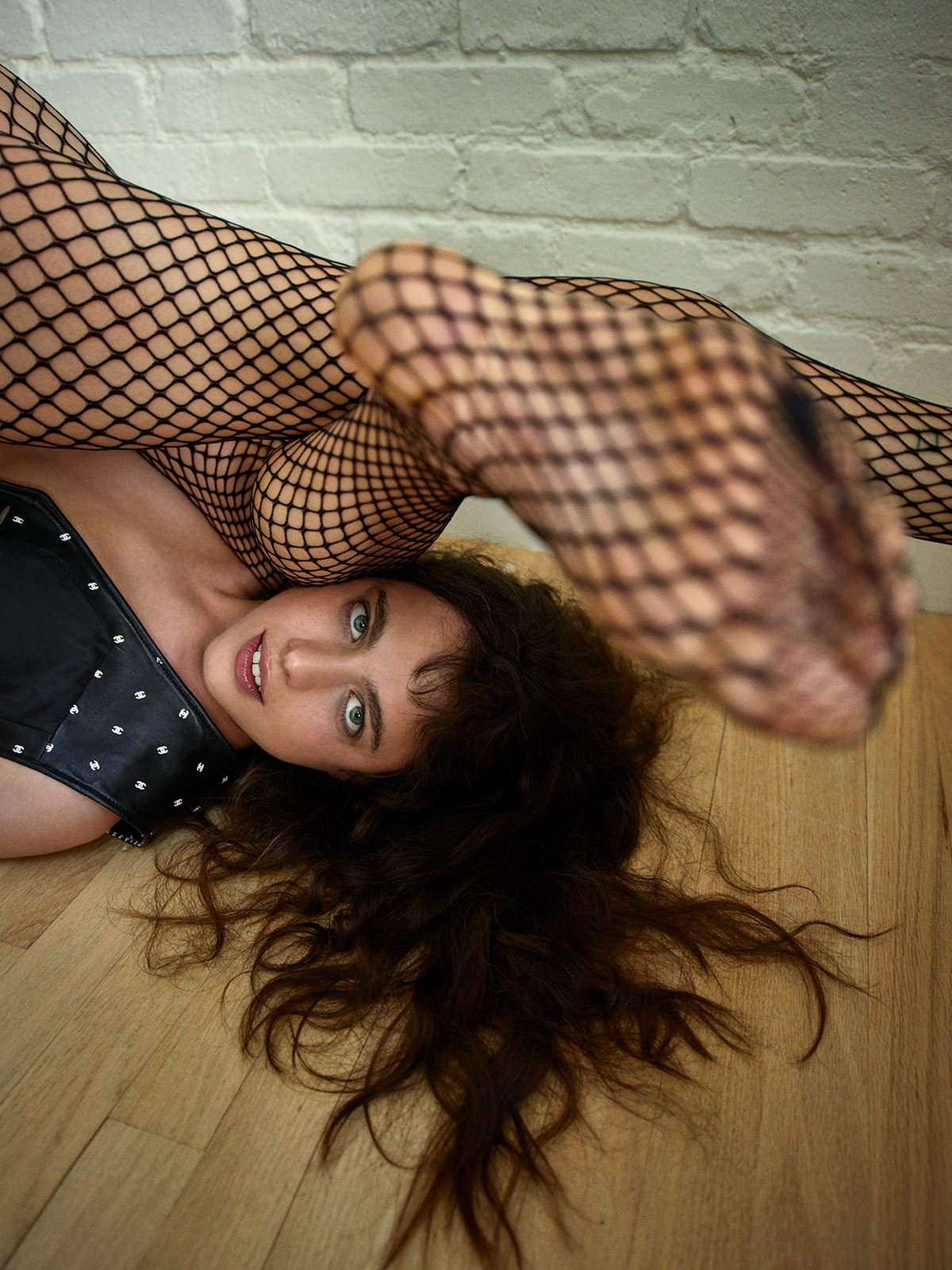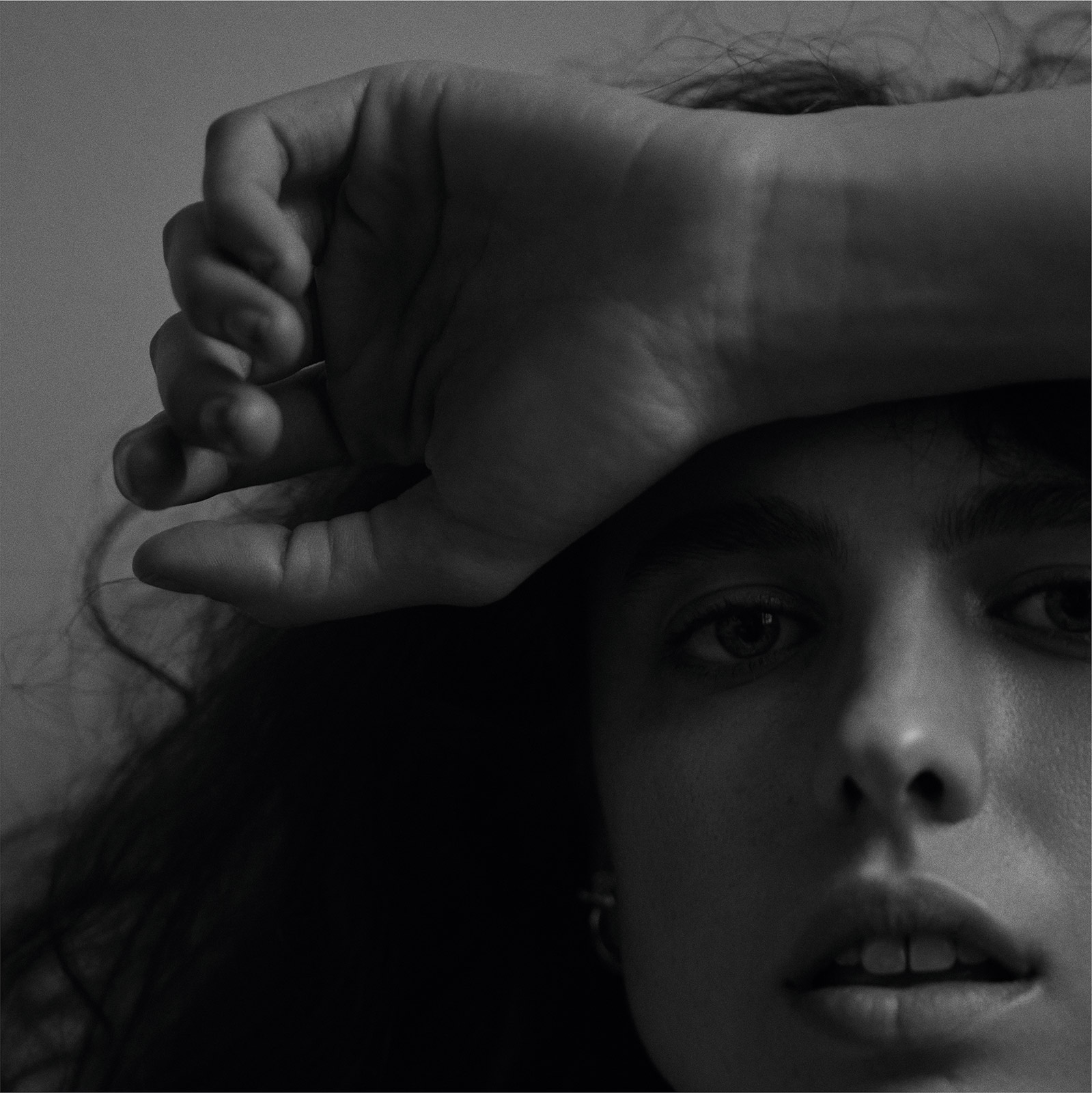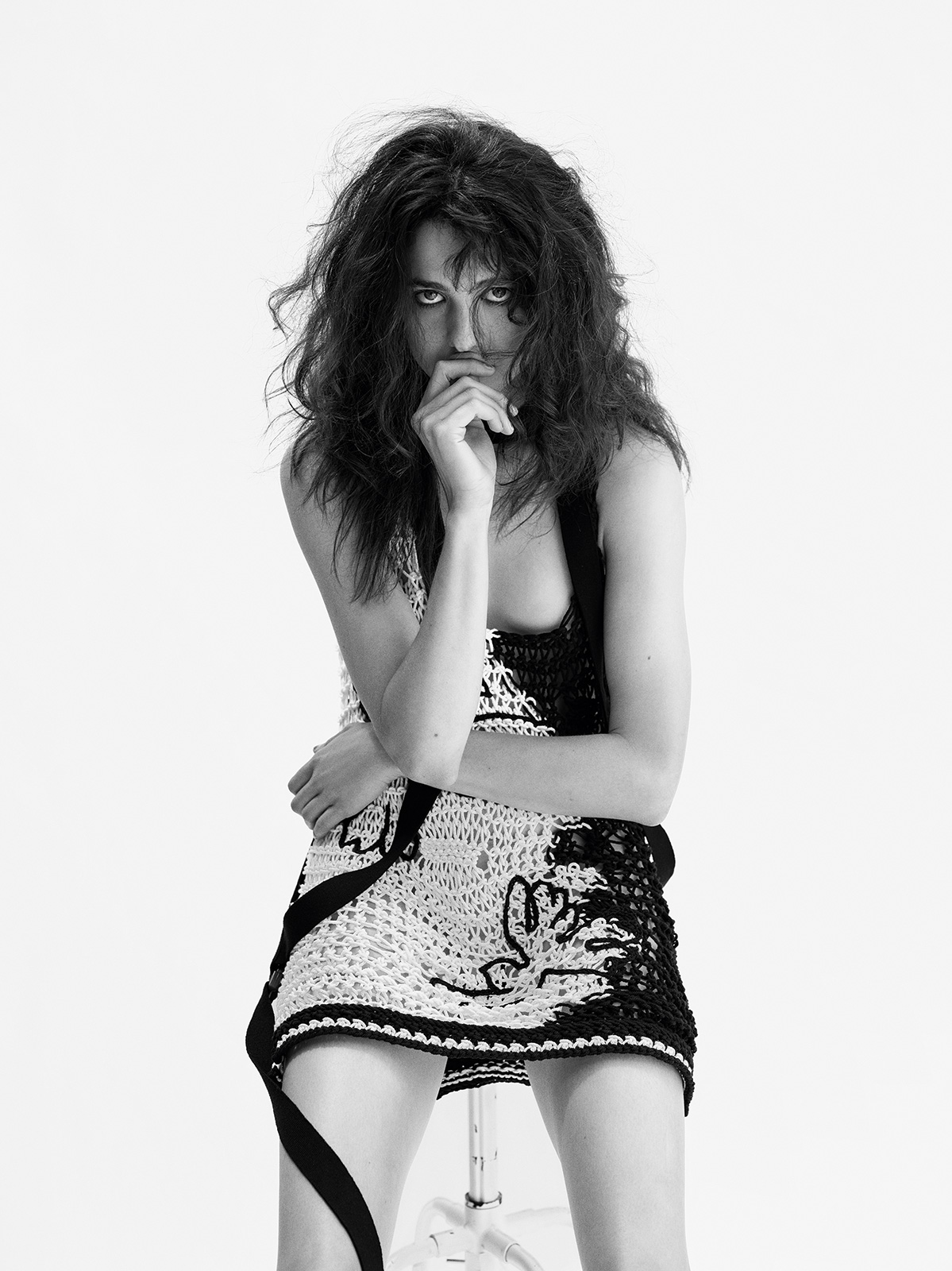
For Document’s Winter 2021/Resort 2022 issue, the two creative multihyphenates discuss make-believe worlds, roleplaying with the ones you love, and why their friendship has prevented international crimes
“Have you been thinking about me?” Margaret Qualley asks longingly. “Of course,” Miranda July answers. “But not every second of every day?” Qualley asks, tears welling in her eyes. “No,” Miranda admits.
This interaction marked the beginning of the pair’s first creative collaboration: a performance art piece that unfolded over Instagram in late 2019, with both actors posting voyeuristic FaceTime clips on public channels, hinting at a doomed love affair. “Is this real?” one commenter asks. “Jesus, this still rips my heart out,” says another. In the coming weeks, the story—which was partially scripted by July and partially improvised—came to involve other public figures like Jaden Smith and the singer Sharon Van Etten.
Qualley and July came up with the idea after meeting at a dinner party and immediately connecting. “At the end of the night, Margaret slipped me [her] number and said, ‘Call me if you ever want to make anything,’ which is all I ever wanted,” says July. The resulting performance is a love story that pulls at the heartstrings, evoking the raw emotion of a breakup while teasing a shared inner world just beyond the viewer’s grasp. It’s a world the two creative multihyphenates have continued to explore, having developed an intimate real-life friendship in the years since—one that has seen them through the pandemic, and served as a source of artistic inspiration for them both.
When they joined Document in conversation, Qualley had just completed a career-defining project: the Netflix original Maid, which has since become Netflix’s most-watched miniseries of all time. Qualley stars in the role of Alex, a struggling mother who finds herself slipping through the holes in America’s social safety net after fleeing an abusive relationship with only $18 to her name and her young daughter, Maddy (Rylea Nevaeh Whittet), in tow. From custody battles to loss of housing, she is met with countless challenges in her attempts to forge a better life, breaking cycles of generational poverty and abuse in the process. Qualley’s performance has gained widespread critical acclaim, cementing her status as one of Hollywood’s most promising young actors.
“The story is dark. I was incredibly surprised that people liked me in it,” she admits, recounting the intensity of entering Alex’s headspace while shooting in Canada at the height of the pandemic, isolated from her family and friends. “I read somewhere that your body doesn’t really know the difference between real and pretend,” Qualley muses. “So when you’re acting, you’re still crying and doing the thing, and you’re like, ‘Whoa, I’m exhausted….’ It’s like, ‘Well, no shit.’ It’s presenting this incredibly messy, vulnerable part of yourself to the world.”
July agrees. “Bodies don’t know they’re actors,” she adds. “You think you’re acting, but on some level you did go through that.” It’s a theme she herself explored in her most recent film, Kajillionaire (2020), an American crime drama-cum-romance in which July’s characters utilize roleplay as a means of accessing deeper psychological truths. Written and directed by July, the film follows Old Dolio (Evan Rachel Wood), an emotionally malnourished young woman trapped in a manipulative relationship with her con artist parents. Raised with little in the way of love and affection, she’s a stranger to the world and to her own desires—at least until she meets charismatic outsider Melanie (Gina Rodriguez). Old Dolio embarks on an intimate journey with Melanie, who volunteers to reenact the childhood experiences of care and nurturing she never had—from making pancakes to the “breast crawl” Old Dolio learns is essential for regulating a newborn’s nervous system. Through this unconventional love affair, the two women learn how to become new people for each other, and in doing so, attain a renewed sense of self.
July’s artistic oeuvre often explores the rich inner lives of idiosyncratic people, who, seemingly against all odds, discover that the source of their ostracization can be repurposed into a fertile breeding ground for connection. In her playfully transgressive debut film, 2005’s Me and You and Everyone We Know—which she wrote, directed, and starred in—she weaves together vignettes about strangers who realize they speak the same inner language: one that others might overhear, but would never quite understand. This intuitive connection is exemplified by July’s real-life kinship with Qualley, with whom she shares a crackling chemistry both on-screen and off; upon witnessing their conversation, it’s easy to see why audiences on Instagram would seek to enter their world. “I truly believe we all have many soulmates, and I am sure that Miranda is one of mine,” Qualley says. “[When we met], I remember feeling that I’m a daredevil, and you’re a daredevil. Together, who knows what’s gonna happen?”
Margaret Qualley: You don’t realize that this is just, like, a really great opportunity to make my best friend talk to me. I’m like, God, I can’t wait to talk to Miranda, I have to tell her everything about my therapy session. Then I was like, It’s for Document, I have to tell her nothing.
Miranda July: We need a chaperone. We don’t trust ourselves. [Laughs] I’ve been watching Maid, and I just want to say up front, you’re so good. I was marveling over the amount of moving around that you have to do on-screen—often the stuff you’re doing [as a maid] is so humdrum, but you make it interesting, and that’s not easy to do.
Camille Sojit Pejcha: What was it like acting and directing characters like Alex and Old Dolio, who are closed off from their emotional selves and operate so much in the physical world? They’re both so compelling to watch, because what you see on their faces is not something that they express in words.
Miranda: Old Dolio was such an extreme character—almost not totally real, she was so unusual, but hopefully real enough. We conveyed a lot of this through body language. She doesn’t look people in the eye; you could tell she hasn’t been asked to consider herself in this life. Margaret, do you remember what it was like inhabiting the body of Alex?
Margaret: I see the similarity in that I don’t think either character has any awareness of their body, beyond what is purely functional; it gets them from place to place, and lifts things and puts them down. There is nothing superfluous about it.
I’ve never had a part like that. I was so strong, between carrying that vacuum and holding Rylea. I would hold that child for hours, and she would fall asleep in my arms. It would really do something to me; I was alone in Canada, and I’d be holding a sleeping child and realize, I’ll be okay.
Miranda: It’s actually very regulating, to have two heartbeats together like that. For orphans, they have people come in and just hold the babies. It’s just interesting to think you’re acting, but you are contributing to the well-being of her nervous system. The funny thing is, that’s always true, no matter who your co-star is. We forget that, and then with a child, you’re suddenly made very aware that this person’s performance entirely relies on you. But that is always the case to some degree, because you are always two dumb bodies—and bodies don’t know they’re actors.
Margaret: I read somewhere that your body doesn’t really know the difference between real and pretend. So when you’re acting, you’re still crying and doing the thing, and you’re like, ‘Whoa, I’m exhausted….’ It’s like, ‘Well, no shit.’
Miranda: Right—you think you’re acting, but on some level you did go through that. What I remember is you sending me videos of Rylea asleep in your arms, and I would think that, at some point, you will be sending me videos of your [real] daughter asleep in your arms. When I finally got to watch the show, I’d seen so many little videos and pictures of her already that I had kind of made the link that she was your child.
Margaret: I still look back on those videos I took in the woods and miss her. She would do the sweetest things. She loved it when I would tickle the back of her neck with a pencil and then she would do it to me.
Miranda: I remember I’d be like, ‘Oh, thank God you have a day off,’ and you’d be like, ‘Yeah, I’m spending it with Rylea.’ You were making something and that didn’t stop [after leaving set]—the way it doesn’t for a director either. You are also, in the kindest possible way, doing a director’s work—just being like, ‘This won’t work if we don’t bond.’ It’s ultimately you and her in the trenches.
Margaret: Yes. There were a bunch of different directors, and she was four, so her sense of safety would have to be through me, because I was the constant thing. Every Sunday we would hang out, me and Rylea, but then also every Sunday I would have a scheduled phone call with you for my sanity. We were in the thick of COVID, and it was very scary.
Miranda: You made me some toast in a frying pan [right before the pandemic]. I remember thinking, This is the best piece of toast I’ve ever eaten—this is the beginning of us eating this toast together, but I’m going to have to wait six months to do it again. There was this toast, and then you were gone… And then, a long time later, these 10 amazing episodes. It was a dark time for everyone in the world, and this is how you spent your dark time—working incredibly hard. No one can ever accuse you of false modesty, [but] I’ve never heard someone be so utterly shocked at their success. You called me and you were like, ‘Can you believe I could actually act all along?’
Margaret: The story is dark. I was incredibly surprised that people liked me in it. Being so heavily involved in something, and having it be so much a part of you, it’s easy to assume that it can’t possibly be good. It’s presenting this incredibly messy, vulnerable part of yourself to the world.
I’m a broken record, but the greatest part of my job is the fact that I’m a control freak and I have to reckon with the fact that I don’t have control. I’m being really vulnerable and then someone is putting it together in the way that they want to present it and showing it to the world. It’s not like I’m putting it together myself. It’s like, ‘Here’s all my naked yuckiness, do with it what you will’—and then you’re like, ‘Oh, God, what have I done? Everyone will see.’
Miranda: Remember when you wrapped and you ended up hanging out with me and [July’s husband and child] Mike and Hopper? And I introduced you to this game that me and Hopper play? It’s called Turning the Tables, where you act out how you seem from someone in your life’s point of view.
Margaret: It’s an incredible game. I want to play this game a lot more, and I want to play this game with Hopper—I think Hopper is such a genius.
Miranda: You know Hopper will sometimes, out of the blue, just say ‘Where’s Margaret? When are we hanging out with her again?’ It really hit me: Your existence registers in this way that’s completely alive to a child, like there’s nothing boring about you.
Margaret: That’s the greatest compliment on the entire planet. I realize that not everyone knows your child, but not all children are as exciting as Hopper. Most of the time when people report back about their children, I’m kind of like, ‘Oh yes, that’s a darling photo.’ But with Hopper I’m like, ‘What does Hopper think about me? Did Hopper have any hot takes on my mental state? Did Hopper like my outfit? Like, did they feel like it was a good representation of my personality?’
“I read somewhere that your body doesn’t really know the difference between real and pretend. So when you’re acting, you’re still crying and doing the thing, and you’re like, ‘Whoa, I’m exhausted….’ It’s like, ‘Well, no shit.’”
Miranda: Hopper could go there. Why hang out with other adults?
Speaking of motherhood—I remember you lobbying for your mom [Andie MacDowell] to be in Maid with you. And I remember you saying to me that it was sort of a gift you wanted to give to her. And, I think, rightly so—[acting together] is a gift you can only give once for the first time. And you were like, ‘Fuck it, we’re in a pandemic—why hold out? Let’s jump in and do it.’
Margaret: Exactly. Usually I have mild hoarder tendencies in the sense that if something’s really nice, I don’t use it. If someone gives me a really nice bar of soap, I’m like, ‘Well, I’m gonna save this bar of soap.’ And then 10 years goes by and the soap is not even good anymore. I took that same soap metaphor and applied it to my mother, especially in the context of this really bizarre time. I am learning that more every second—that life is fleeting, and your family and friends are important. I think that COVID brought that to the forefront. I’m speaking from an incredible place of privilege and I’m fully aware of that—it’s obviously such a tragic, horrible time.
Miranda: Everyone died because of you.
Margaret: Everyone died because of me, but one beautiful thing that came from it was the realization that family is so important, and I don’t have forever, so let’s go ahead and do this magical thing that I’m excited about right now.
Miranda: After shooting, would you guys ever process the day or do a review? This is such a nerdy question, but do you ever talk about acting?
Margaret: What’s funny is that my mom thinks of us as being very different [actors]. I remember the director was setting up this scene with my mom, and she was like, ‘Margaret likes things this way, but I need it like this.’ It just made me laugh so hard, because I feel like sometimes the dynamic between a mother and a daughter is that [as a daughter], you’re always trying to be seen—and then every once in a while your mom will say something that cuts so close to the truth and you’re like, ‘Well, yeah. Okay. You’ve seen me all along.’
Miranda: When I asked if you talk about acting, I was probably asking because occasionally—very timidly and sheepishly—I’ll try to talk shop with my dad, because he’s a writer and I’m a writer. And I’m astounded at myself that I want him to see that he and I do the same thing. It’s weird—no matter how complex the relationship is, the things you want as a child, as somebody’s daughter, are always kind of dumb. I’ve gotten off the phone sometimes being like, What was I trying for there? This [intangible] thing that I’m never going to be able to get.
Margaret: I’m going to let you hold on to that one.
Miranda: Remember when you came back from shooting, and you cut yourself little bangs?
Margaret: Yes, what a terrible choice. I’m living with them still.
Miranda: I’ve never asked, but I remember thinking, Well, the important thing is that she’s expressing her freedom. [Laughs] So, how did you come out of it after shooting? I’ve never shot something for so long.
Margaret: I was so tired that I really needed to just do nothing. I was very excited to see everyone I love and also, like, just needed to lock myself in a room for a few weeks. I announced my return to my friends, like, two weeks after my return, because I needed to slowly ease back into society.
Miranda: I remember being so jealous in a way, because right after wrapping is the only time I let myself off the hook. I don’t feel guilty about not doing anything, because it’s what you need.
Margaret: When you’re working, it’s kind of like, Oh, I can be responsible for nothing and be held accountable for nothing, you know? And then you get back and you’re like, Oh, God, I have real life now, where I’m held accountable for everything. On set I’m just acting like a little baby, and somebody is putting me in clothes, and telling me where to go, and what to say, and giving me food.
Miranda: As a director, when you’re doing a movie, your vision of what people are doing out in the real world is, like, just going out to breakfast constantly. That’s my whole vision of what I’m missing out on in life. Then you come back to real life and you’re like, Oh, this sucks. There is always an aspect where I’m like, My inability to really deal with this world is the whole reason I got into making things for a goal. You want the altered state.
I realized I have a note about you for this interview. It just says, ‘I think you are one of our greats and the sooner we can get this show on the road, the better for everyone.’
Margaret: Coming from you, that means the world, because I couldn’t hold your opinion higher. One of the greatest parts about talking to you is that your perspective is undoubtedly so wildly different from mine. You’re such an original thinker that when I tell you something and I’m, like, kind of expecting to hear something similar to others’ advice or whatever is already in my head, I’m always wrong. I get this whole flip on everything I’m experiencing.
“There is always an aspect where I’m like, My inability to really deal with this world is the whole reason I got into making things for a goal. You want the altered state.”
Miranda: Well, there have been two times I’ve talked you out of doing things that may have been illegal.
Margaret: Oh, yes. Once I was going to slash someone’s tires. The other, I won’t even bring to the table, but it involved a boat.
Miranda: It might have involved international crime. Like, multiple governments. The thing is that you presented both of these ideas to me very confidently.
Margaret: And you’re the only person to stop me in my tracks! I was really going to do it. I was on my way.
Guys, I did a bad thing. I’m in Panama, and I’m about to do this Claire Denis movie. I told Claire I was going to be at the pool between five and six, and I meant six and seven. She just texted me. So I’m going to have to run out to tell her I’m so sorry.
Miranda: We’re standing up Claire Denis.
Margaret: She’s really sweet so I think it’ll be okay. So here’s the part where I say, ‘Okay, Miranda. So, you say I’m great. Cool. I think that you’re great. Super cool. So now, when are you going to write a movie for me?’
Miranda: On the record.
Margaret: On the record, I’m asking for a part. I’ve been on the same train since day one, Miranda.
[Miranda and I] had the best meeting—it was such an epic journey to becoming friends, and it was one of the most bizarre, cool things in my life.
Miranda: Should I say the short version of it? So, we met at a dinner for our friend Yorgos [Lanthimos.]
Margaret: The very first thing that happened was like, we immediately got into some kind of physical play altercation and she took me by the shoulders and accidentally rammed me into Taylor Swift. Neither of us had met Taylor before, but Taylor looked at me and she somehow knew everything about me. It was one of the greatest nights of my life. I met three people that I became good friends with: Yorgos, Taylor, and Miranda. I truly believe we all have many soulmates, and I am sure that Miranda is one of mine.
Miranda: At the end of the night, you slipped me your number and said, ‘Call me if you ever want to make anything,’ which is all I ever wanted. The thing I wrote had to be on FaceTime, since you had already gone back to New York. So I wrote this little tortured love scene. I can still remember the feeling of acting together and being like, Oh, she’s wickedly good at this.
Margaret: I remember feeling that I’m a daredevil, and you’re a daredevil. Together, who knows what’s gonna happen?
It’s always like that: I’ll spend a night with Miranda, we’ll go out somewhere, and by the end of the night, we’ll end up being partially clothed wrestling in the middle of the street, and we’ll be like, ‘Wait, how did we end up here?’ This is a true story. We’re both just total yes-men—and we’re like, ‘If you’re going to do it, me too.’ ‘Oh, well I’ll take it one step farther.’ It’s really scary fun.
Hair Bob Recine at The Wall Group. Make-up Frank B at The Wall Group. Manicure Alicia Torello at Bridge Artists. Photo Assistants Kotaro Kawashima, Javier Villegas. Digital Technician Chad Meyer. Stylist Assistants James Kelley, Grace Beck. Tailor Victoria Yee Howe. Hair Assistant Kazuhide Katahira. Make-up Assistant Natsuka Hirabayashi. Production Katie Fash, Layla Néméjanski. On-set Producer Steve Sutton. Production Assistant William Cipos. Production Director Madeleine Kiersztan at Ms4 Production. Casting Director Angus Munro at AMC Casting. Printing by Arc Lab Ltd.



